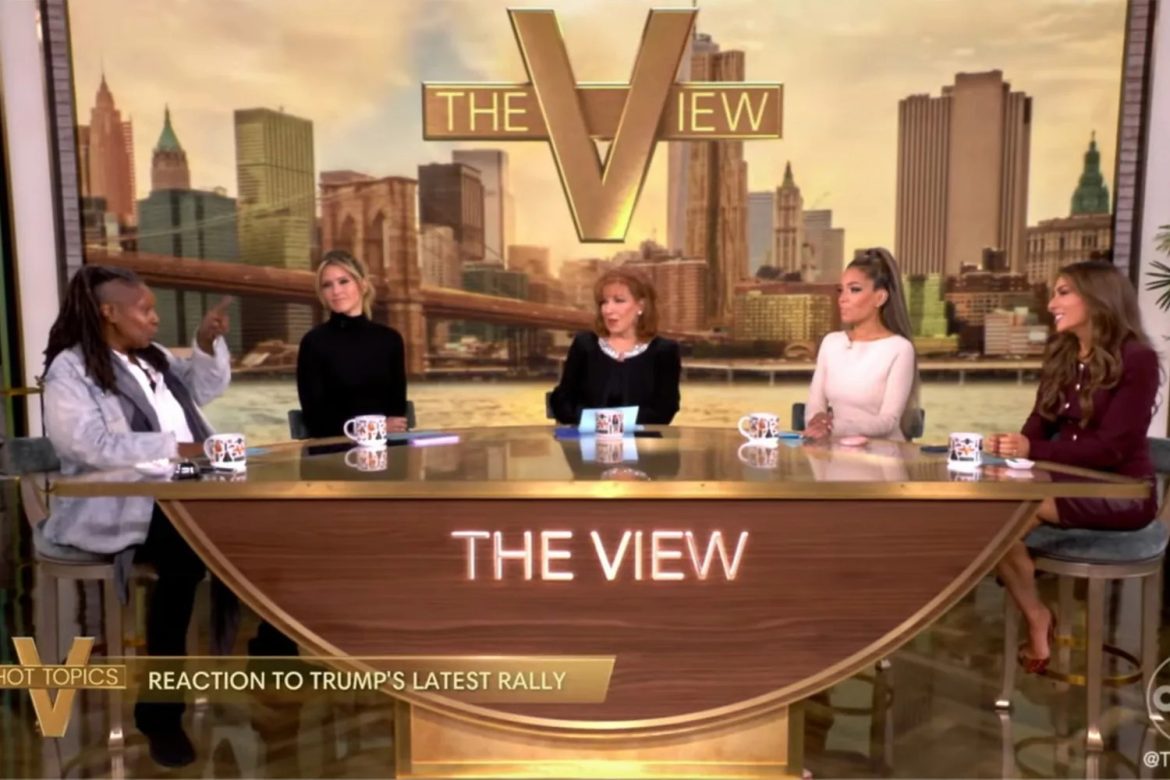In Dallas, a controversial anti-abortion advertisement aired during the broadcast of “The View,” sparking debates across the nation. The ad, funded by long-time anti-abortion activist Randall Terry, targets several hosts of the show along with various celebrities and journalists. The airing is part of a broader campaign by Terry, who is taking advantage of Federal Communications Commission (FCC) regulations that prevent broadcasters from refusing advertisements by legally qualified political candidates. The ad is noted for its graphic content, including images of aborted fetuses, and compares celebrities to Nazi figures Joseph Goebbels and Leni Riefenstahl.
The ad campaign is not limited to “The View.” Similar advertisements have been running in states where abortion laws are currently a topic of legislation. These ads seek to influence public opinion, particularly among viewers aged 50 to 80, who are often considered to be a key demographic of broadcast television. Randall Terry, who is also a fringe presidential candidate, has been utilizing his status to ensure the ads are aired, bypassing potential censorship that could come from broadcasters unwilling to air such graphic content.
ABC, the network airing “The View,” issued a disclaimer during the broadcast, indicating that they were legally required to air the ad due to FCC regulations. The disclaimer included a warning about the graphic content of the advertisement and advised viewer discretion, particularly concerning children. Despite the controversy, the network complied with the federal law, making it clear that they were not endorsing the message contained in the ad.
Randall Terry has been vocal about his intentions, stating that the purpose of his advertisements is to challenge the current political climate, targeting what he considers to be influential figures in the media and entertainment industries. While Terry acknowledges that he is unlikely to win the presidency, his campaign uses the FCC’s requirement for broadcasters to air content from candidates to spread his message. Terry’s ads often criticize abortion rights supporters, aiming to sway voters against political figures he believes are promoting abortion.
Christian F. Nunes, president of the National Organization for Women, expressed concern about Terry’s campaign, suggesting that it manipulates FCC regulations to disseminate hate speech. She believes that such advertisements undermine democratic values and could potentially alienate women voters, driving them to oppose Terry’s views in upcoming elections.
Jack Goodman, a former general counsel of the National Association of Broadcasters, remarked on Terry’s strategic use of FCC rules for his campaign. While the rules protect free speech for candidates, they also tie the hands of broadcasters, preventing them from censoring content, no matter how graphic or controversial it may be. As long as the content does not fall under standard definitions of obscenity, broadcasters are obligated to air it.

